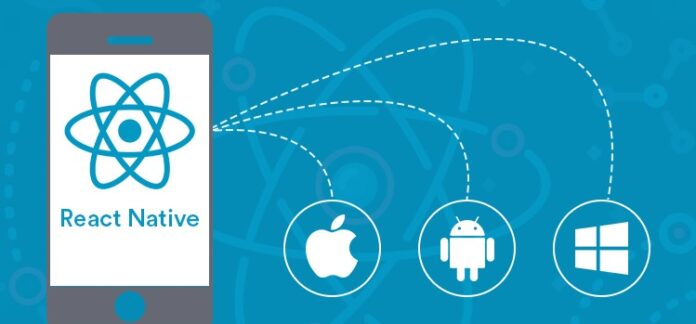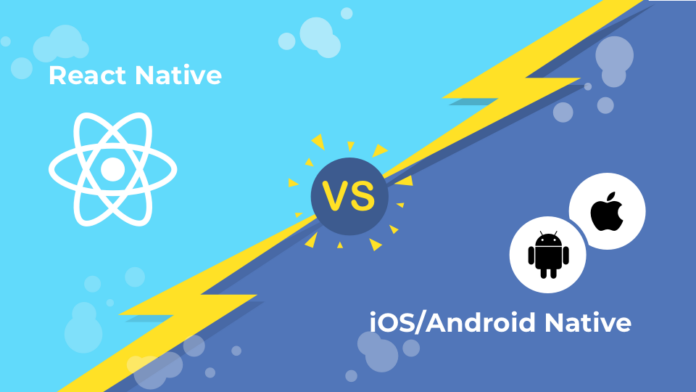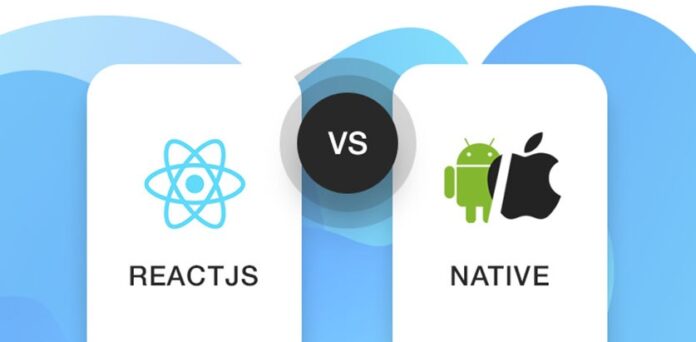With increasing digitalization, your potential clients can be anywhere in the world using their smartphones. Whether they are learning, or banking online, they prefer apps over anything else. Moreover, it’s a good way to communicate with colleagues, set deadlines, and organize projects or events. Currently, dozens of installed applications on smartphones have symbolized the digital era. According to a recent survey, the number of mobile users is going to reach up to 7.5K billions in 2026.

Having that in mind, companies of any size should invest in mobile app solution development to show up their products or services. Not only does it help them improve sales and enhance brand value, but businesses can also provide a better customer experience and become more competitive in the market. However, before creating an app, it’s imperative to mention that there are different approaches to building applications. Let’s delve into the details to reveal which one works for you.
Native mobile application development: Why should you opt for it?
Developed exclusively for a specific operating system (Apple’s iOS or Google’s Android), native apps are written in a language compatible with the platform Java/Kotlin/C++ for Android-based apps while Objective-C/Swift for iOS-based ones. In addition to that, a native iOS solution will not function on the Android platform and vice versa. Additionally, native mobile solutions don’t require an internet connection and can work offline. Thanks to their high performance and usability, they often rank high on app stores in comparison with cross-platform apps.
Key Takeaways of Native app development

Here we’ve summarized core takeaways on native application development to give businesses a better understanding of it.
- Speed, graphics support, and overall efficiency of the native mobile app solutions are much better in comparison with cross-platform ones.
- Software engineers do not need to take care of compatibility outside the operating system.
- When it comes to customizing UIs, native solutions provide more natural elements for the end-users and great integration possibilities. This enables software engineers to create a better product.
- You can minimize the number of risks in your native application as the data is encrypted within one infrastructure.
- Not only can native app engineers immediately implement new features when Android/iOS release updates, but they can also make adjustments to the most recent features in a simple click.
React Native app development: Is it a good option for your future mobile solution?

With the rise in popularity of cross-platform React Native technology, more and more IT professionals fall in love with it when it comes to mobile development. Developed by Facebook, React Native is used as open-source cross-platform technology and allows development teams to create mobile app solutions simultaneously for both Android and iOS. Its component-based and reusable code makes the development of complex mobile app UIs fast and less stressful. In addition to that, technology supports analytical and demonstrative coding and excludes poorly written code. Moreover, it interprets source code and converts native elements quickly and easily. Popular and widely used applications such as Instagram, Bloomberg, Pinterest, Skype, Tesla are built with React Native technology.
Key Takeaways of React Native development
Here we have pulled together key takeaways on what we discovered about cross-platform React Native development.
- In terms of app complexity, software engineers can share up to 80% of a codebase across different platforms that significantly speeds up the mobile development process.
- With React Native technology, development teams can work on image editing and video processing as opposed to other API frameworks.
- With the hot reloading feature, you can get near-instant feedback for changes in React components that makes bug fixing faster and less complicated.
- Not only does it provide access to certain useful native functionalities, but it also offers ready-to-apply elements and focuses on rendering highly responsive UIs that shortens the developing time up to 30%.
- It’s an enterprise-friendly and attractive option for Agile development.
- Dealing with one codebase allows developers to maintain an app much easier.
Comparing React native vs iOS and Android native development

Let’s take a closer look at the meaningful comparison of approaches for mobile app development to help you pick one.
- Cost: Building the native apps (iOS/Android) requires more development time and personnel while opting for React technology drastically will save you a lot of resources.
- Performance: Undoubtedly, Apple’s iOS and Google’s Android native apps perform better as their code interacts directly with the device’s resources while React native app cannot utilize the native features and has limited access to the API. For example, React Native app is 10x lower than the native one.
- User Experience (UX): With better performance and higher speed, responsive and intuitive Apple’s iOS or Google’s Android native apps deliver a great experience while it is more complicated for React Native professionals to fulfill all the UX requirements of multiple OSs and create an app that functions smoothly.
- Timeframe: The code produced with React Native technology can be utilized and duplicated across multiple operating systems that drastically fuels the process of development and increases the chances to meet the deadline. As for the native apps, you need more time and resources to develop, test, and support an app for different platforms.
- Integrations and third-party components: Plugin integration, compatibility issues are still often common for a cross-platform app built with React native. Though Apple’s iOS or Google’s Android native apps enable development teams to access all the target device’s resources and integrate native APIs and third-party tools in a jiffy.
- Debugging capabilities: When thinking about React Native app development, development teams may face unexpected problems in the code while troubleshooting in iOS and Android native development is less risky.
However, there is no one-size-fits-all solution. Generally, the business and app’s functional requirements are instrumental in making a decision. If you can’t determine development type whether native development based on Apple’s iOS or Google’s Android or cross-platform mobile development, here are the core questions you should consider and try to answer:
- What are your budget and timeline?
- Is great performance critical for your future mobile solution?
- Are immediate and real-time updates critical for your app?
- Is online mode essential for your application?
Only by answering these questions can you decide which option native iOS and Android or cross-platform apps built with React Native technology works for you.
Bottom line: Ready to connect with your customers through mobile apps?

Doing business in today’s digital environment is impossible without consumers. That’s where a mobile app solution comes into play. Not only is it a much more reliable, personalized, and convenient way to interact with the customers, but it is a good option to stay ahead of competitors. Only by investing in mobile app solutions can you build and improve long-term relationships with your customers and drive more revenue.
When it comes to mobile app development, both the native (Apple’s iOS or Google’s Android) and cross-platform apps built with React Native may open up massive benefits for your company. Only by identifying your specific business goals and requirements can you make the right decision and boost your profitability significantly. Still have some doubts about choosing native Android and iOS or cross-platform React Native development? For more details, check IT Master Soft site









